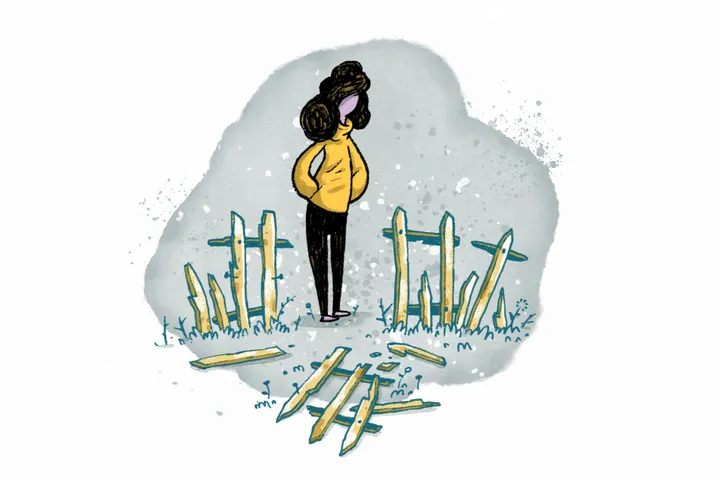“How can I help you?” We hear this question many times in a week: from the librarian as we browse the shelves to the bank teller when we make a withdrawal, and even our doctor at an office visit. In each case, we’re invited to express our need. But we don’t ask the bank teller for book recommendations or the librarian for medical advice. And we certainly don’t tell our doctor we’d like our cash in tens and twenties. When people ask how they can help us, we respond by stating a need we know they’re capable of addressing. That’s what happened after Jesus asked a blind man, “What do you want Me to do for you?”
 Illustration by Vincent Mahé
Illustration by Vincent Mahé
BACKGROUND
Jesus had spent some time in Tyre, Caesarea Philippi, and Galilee with His disciples, performing miracles and teaching about the kingdom of God. Now they were headed to Jerusalem just before Passover. With Jesus’ triumphal entry just days away, the group was going through Jericho.
READ
REFLECT
Many came to Jesus for physical healing, but He knew their greatest need was spiritual wholeness.
In verse 48, Bartimaeus called out, “Have mercy on me!” The Greek word translated as “mercy” is eleéõ, meaning “have pity” or “have compassion.” On the surface, it seems like a simple request for food, clothing, or money, which the destitute asked for every day. Why did Jesus suspect the man wanted more than a handout? Think about what you’ve asked of Jesus lately. What desires, motivations, or even insecurities might be behind your requests?
When Jesus called for him, Bartimaeus first threw off his cloak and then came to the Lord. Some scholars believe this casting off is symbolic of leaving his past behind. What would Bartimaeus need to abandon once he could see? Is there a “cloak” you might need to throw off in order to receive a blessing or healing from Jesus in this season?
In verse 51, Jesus asked what Bartimaeus wanted Him to do. How does the blind man’s answer reveal evidence of his faith? What would you say if Jesus asked you the same question?
We credit the Lord with healing Bartimaeus, yet in verse 52, Jesus says the blind man’s faith has made him well. Consider what this means for us today. To be healed of all kinds of diseases and disabilities, is it simply a matter of needing more faith? In what way does faith actually heal us?
CONTINUING THE STORY
Jesus and Bartimaeus weren’t the only ones present. The crowd and the disciples also played roles in the story.
As Jesus was passing through Jericho, His disciples and a great multitude were following along. Unlike Jesus, the crowd was impatient with delays and interruptions. The Bible says they were “sternly telling [Bartimaeus] to be quiet” (v. 48). In what ways can social pressure or the opinions of others keep us from Jesus?
This was the second time on the journey that Jesus asked, “What do you want Me to do for you?” Read Mark 10:32-45. How is James and John’s answer different than Bartimaeus’s? What does it show about their faith? How were the disciples blind, though physically able to see?
REFLECT
When Jesus asks what we want Him to do for us, He’d like us to recognize both the depth of our need and the extent of His glory.
Read John 9:1-41 for the story of another blind man gaining sight. The Pharisees questioned and harassed Jesus, ostensibly because the miracle occurred on the Sabbath (v. 14). What came to light, however, was that they disbelieved His claims to be the Christ. In what ways has Jesus helped you to truly see? Give thanks to God for healing your spiritual blindness.





